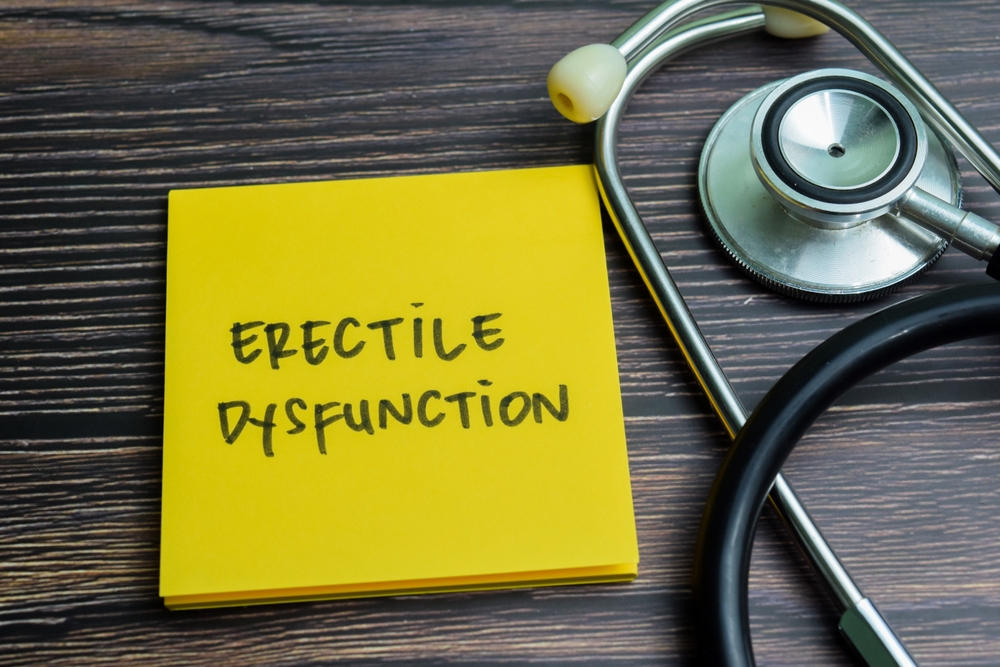The Link Between Testosterone and Erectile Dysfunction: Michigan Men’s Health
Many men experience erectile dysfunction at some point in their lives, and while it can be a sensitive topic, understanding its origins is key to finding effective solutions. Erectile dysfunction often involves a combination of physical and psychological factors, and one critical element in this equation is testosterone. Fluctuations in testosterone can have a direct impact on a man’s sexual performance, and this is particularly true for men dealing with erectile dysfunction. By recognizing how hormonal imbalances might contribute to erectile dysfunction, individuals can pursue targeted strategies for improvement. In Michigan and beyond, awareness of the link between testosterone and erectile dysfunction is growing, encouraging men to seek comprehensive medical evaluations that address this common issue.
What is Erectile Dysfunction
Erectile dysfunction refers to the persistent inability to achieve or maintain an erection firm enough for sexual activity. While occasional erection difficulties are normal, erectile dysfunction that persists signals an underlying concern. Despite misconceptions that it only affects older men, erectile dysfunction can occur at various ages, particularly when lifestyle factors or hormone levels come into play. Testosterone levels naturally decline with age, but factors such as chronic stress, obesity, and certain medical conditions can accelerate this drop. In Michigan, men dealing with erectile dysfunction are increasingly seeking hormone testing to understand whether an imbalance in testosterone contributes to the problem. Pinpointing the root cause allows for more personalized, effective interventions.
How Testosterone Influences Erectile Dysfunction
Testosterone is often associated with libido and physical strength, but it also plays a more subtle role in erectile dysfunction. Low testosterone can diminish sex drive and energy levels, making it tougher to maintain a healthy erection. Since erectile dysfunction results from complex processes involving blood flow, nerve function, and psychological well-being, a decline in testosterone can disrupt these processes, intensifying the severity of erectile dysfunction. While testosterone might not be the only factor, it is a significant piece of the puzzle. By addressing testosterone deficiencies, men facing erectile dysfunction may see meaningful improvements, particularly when treatment is combined with other therapeutic approaches that target circulatory or emotional aspects of sexual health.
Early Indicators: Symptoms and Warning Signs
Erectile dysfunction does not always appear overnight. Instead, it can develop gradually alongside diminishing testosterone levels. Early signs might include reduced morning erections, decreased sexual interest, and quicker onset of fatigue. Some men notice mood changes, such as increased irritability or mild depression, which can further complicate sexual function and exacerbate erectile dysfunction. Being attentive to these early indicators helps men recognize when it is time to seek medical input. In Michigan, clinics that specialize in men’s health now offer detailed hormone evaluations for those experiencing erectile dysfunction. This level of attention to hormonal health means men can identify problems sooner, making it more likely to correct imbalances before they become severe.
Comprehensive Testing & Diagnosis
When erectile dysfunction persists despite lifestyle changes or first-line remedies, comprehensive testing can shed light on potential testosterone imbalances. Measuring total and free testosterone, as well as other hormones, helps create a clear profile of a man’s hormonal state. This is especially valuable when erectile dysfunction coexists with other symptoms like low energy, unexplained weight gain, or cognitive issues. Specialized men’s health providers in Michigan often recommend these tests, using results to tailor interventions that tackle both erectile dysfunction and the underlying hormone imbalance. Thorough assessments also rule out alternative causes, ensuring that treatment focuses on the true source of erectile dysfunction instead of just addressing surface-level symptoms.
Hormone Replacement Treatment Options
Addressing erectile dysfunction caused by low testosterone often involves hormone replacement therapy. This approach can restore testosterone levels to a more optimal range, potentially alleviating erectile dysfunction and boosting libido. However, it is important to note that not every case of erectile dysfunction stems from low testosterone alone. Medications that enhance blood flow, such as phosphodiesterase type 5 inhibitors, can also be part of an effective treatment plan. Psychological support, whether through counseling or stress management techniques, may be crucial as well. By combining medical interventions with proper follow-up, men struggling with erectile dysfunction have a better chance of achieving lasting improvements in sexual performance and quality of life.
Lifestyle Changes to Support Men’s Health
While medical solutions remain paramount, certain lifestyle adjustments can reinforce positive outcomes for men with erectile dysfunction. Balanced nutrition supports healthy hormone production, with nutrients like zinc and vitamin D potentially aiding testosterone levels. Regular physical activity and resistance training can also stimulate natural testosterone production, helping reduce the impact of erectile dysfunction. Managing stress through meditation, breathing exercises, or therapy can alleviate some of the mental burdens that contribute to sexual performance issues. Even improving sleep hygiene can make a difference, as chronic sleep deprivation disrupts the hormonal balance necessary for preventing erectile dysfunction. In Michigan, men focused on comprehensive health approaches discover that merging medical advice with beneficial lifestyle tweaks can yield enduring improvements.
Seeking Professional Guidance with Testosterone Therapy
Men dealing with erectile dysfunction might feel embarrassed or discouraged, but seeking professional guidance is often the most effective step toward resolution. Trained specialists can differentiate between physical and psychological contributors, ensuring that treatments address all relevant factors. In some instances, low testosterone plays a pivotal role, making hormone therapy a viable solution for persistent erectile dysfunction. In other cases, vascular problems, medication side effects, or emotional stress are at the heart of the issue. By consulting with a men’s health provider, individuals benefit from a thorough diagnosis that aligns treatments with their specific needs. This holistic approach reduces guesswork and improves the odds of overcoming erectile dysfunction in the long term.
Conclusion
Erectile dysfunction may feel like an isolating struggle, but understanding the role testosterone plays can pave the way for meaningful, lasting improvements. Hormone imbalances, especially those involving testosterone, can disrupt the body’s sexual responses and lead to ongoing erection difficulties. Through comprehensive testing and personalized treatment strategies, men can tackle erectile dysfunction at its source, whether that involves restoring hormonal balance, improving cardiovascular health, or reducing emotional barriers. If you are in Michigan and struggling with erectile dysfunction, consider reaching out to Aryze Well for hormone testing and men’s health services. By identifying and addressing issues related to testosterone, you can take a pivotal step toward reclaiming your vitality and confidence. Contact Aryze Well today to explore specialized telehealth consultations and tailored programs designed to help you overcome erectile dysfunction and restore a healthy quality of life.
Dr. Indea May is a seasoned healthcare professional with over 20 years of experience in nursing and holistic medicine. As the Clinical Director of Aryze Well, PLLC, she combines her expertise in functional medicine, bioidentical hormone replacement therapy (BHRT), medical weight loss, gut health restoration, and IV hydration to provide integrative and personalized care. Read More: https://aryzewell.com/meet-dr-indea-may/
- Indea May



